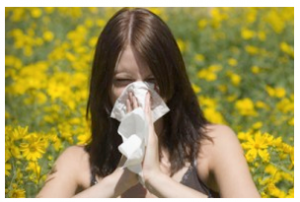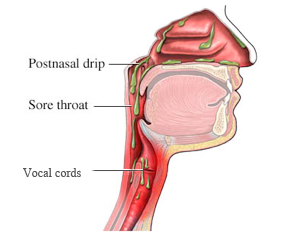- Question: How do the ingredients in e-cigarettes and vaporizers affect respiratory health? - August 16, 2019
- Bad Technique and Vocal Injury - January 9, 2019
- Is Edible Marijuana Dangerous for the Voice? Myths Dispelled - December 18, 2018
- Surprise! You have a hemorrhage - January 31, 2018
- Graves’ Disease: Treatment Overview - September 25, 2017
- Adele and the Stigma of Vocal Injury - July 11, 2017
- Vocal Curbside Consult: How does the thyroid affect the voice? - May 16, 2017
- Vocal Curbside Consult: How do hormones affect the voice? - May 3, 2017
- Vocal Curbside Consult: How do emotion and stress affect the voice? - April 17, 2017
- Vocal Curbside Consult: Vocal Recovery After Illness - April 7, 2017
Tip # 5: Taking care of your voice means more than taking care of your voice box
Although it may not seem like it with the rash of rainy cold weather in Los Angeles and the snow in the Northeast, spring really is just around the corner. And while we relish the change to lighter clothes and longer bright days, spring also brings some other shifts. While some people thrill at the bloom of flowers and trees, others see the coming of spring’s blossoming with dread. That’s because with that blossoming comes… pollen.
Different flowers and trees bloom at different times of year and there are geographic variations throughout the country. However, it seems that the vast majority of allergy sufferers become symptomatic in the spring.
Symptoms include:
-
- General fatigue
- Itchy/watery eyes
- Runny/itchy nose
- Scratchy throat
- Low grade fever
- Sinus pressure
What are allergies?
Allergies are basically the result of an overly-aggressive immune system. The things that cause allergies (cat and dog dander, pollen) are not threats to your health. However, the allergy sufferer’s immune system perceives them as threats and launches an attack against them when you are exposed.
This is why allergies often feel like a cold, because your body mounts the same defenses:
- Increased nasal secretions
- Increase eye secretions
- Inflammation of nasal lining
There are also many chemicals released in the bloodstream to help your body fight this perceived threat. Although it is too complex to list all these chemicals here, the most common culprit in causing symptoms is histamine, which is why doctors will prescribe anti-histamines.
How do allergies affect my voice?
It doesn’t seem logical that allergies that affect your nose and your eyes can affect your larynx (voice box), which seems to be located far away. However, the savvy voice user understands how all these structures are connected.
They are connected by postnasal drip. Postnasal drip is the collection of secretions that form in your nose and sinuses that drip into the back of your nose. From there, these secretions drop straight down onto your vocal cords (Figure 1).

This irritating drainage causes the vocal folds to swell, which can cause:
- Pitch change (lower fundamental pitch)
- Altered vocal range (loss of high notes, gain of lower notes)
- Decreased resonance
- Throat pain
- Cough
- Increased risk of hemorrhage of vocal folds
What should a vocal user do?
Combating allergy in a professional voice user requires treading the delicate balance between drying out the allergic mucous and not overdrying the vocal folds. This may involve a combination of the following:
- Sinus Rinse
A staple in the fight against allergy, this saline wash, historically called a “Netti Pot” rinses away allergic particles before they can trigger that immune system response. It also washes away existing mucous before it can drip into your throat and promotes overall good nasal hygiene
- Anti-histamine or steroid nasal spray
This excellent group of medications allows topical treatment of the initial point of contact of allergens in your body. Because you breathe allergens in through your nose, fighting the immune response here makes sense. And as an added bonus, there is almost no absorption of these chemicals into your body.
- Antihistamine pills
Singers often dread taking these because of a fear of over-drying the vocal folds and it’s true that some singer are very prone to this side effect. By working with your doctor (preferably a laryngologist), a balance can be struck.
- Other medications
Occasionally, the allergy sufferer may require other medications, such as steroids, inhalers, or antibiotics when an infection has occurred. Speak with your laryngologist to assess whether or not you may need these. They will likely refer you for allergy testing and to see an allergist.
A Final Note:
Around this time of year (and all year around in Los Angeles, where air quality is poor), I see patients suffering with frequent colds. Allergy is often the culprit in these cases because allergy makes you more likely to catch colds. It is almost as if your immune system is distracted by fighting these benign particles (pollen, etc) and can therefore catch bugs.
If you are a professional voice user who suffers from frequent colds, it is worth it to be evaluated for a possible allergic component. Struggling for months out of the year with allergies and subsequent colds isn’t necessary. Preventative care can make you healthy year round.
To learn more about Dr. Reena Gupta or proper vocal care, visit: http://www.voicedoctorla.com/



